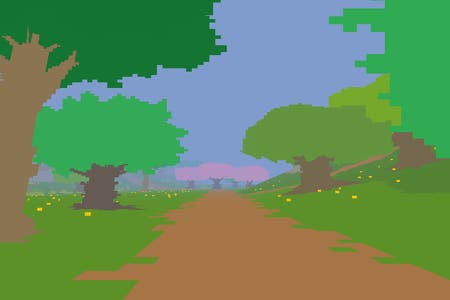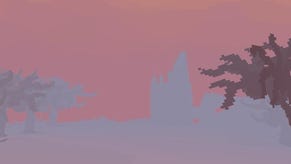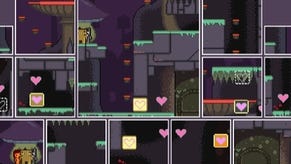Lost Humanity 7: Healing
Why Proteus really speaks to Rob Florence.
I spent the weekend at the island.
I bathed in the waters, walked the hills, and saw the stars dance. I chased tiny creatures and listened to them sing. My breathing was calm, and my mind was at ease. The island let me float for a while.
I've never been so unsure of something I've written in my life. I've probably never written something so personal. But I felt that to properly convey how important I think Ed Key and David Kanaga's Proteus is, I had to be honest about why it really speaks to me.
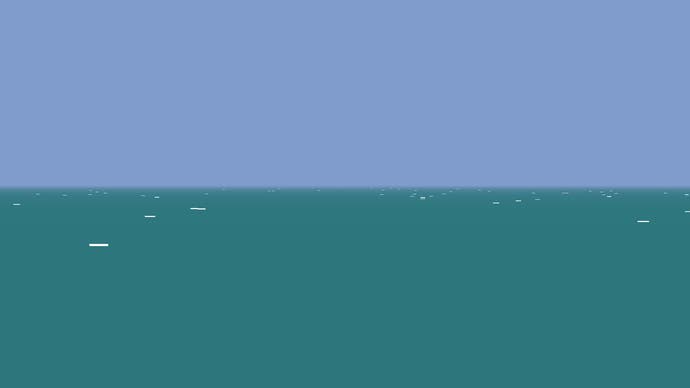
Let me tell you about the year I went mad.
Not long after my daughter was born, almost five and a half years ago, I woke up in the middle of the night with a weird pinching pain in my side. I instantly thought that I was having a heart attack, despite the pain being nowhere near my heart or anywhere even related to my heart. The feeling passed, and I eventually went back to sleep. But something happened that night. I changed. I lost myself. I was in terror for an entire year.
The very next day, I noticed a pulsation in my neck. You, being of sane mind, will understand that a pulsation in the neck is completely normal. I was convinced that my heart was pumping too hard, and that it was a sign of impending death. I googled to find evidence that I was dying. (As we all know, it's really easy to find that evidence.) And then I went to the hospital, late at night, to ask for help. That would be my first of five late-night visits to the casualty department that year.
I had every kind of test. The NHS is the most brilliant thing, and such a compassionate body that it even thoroughly checks out people who have clearly gone mad. There was nothing physically wrong with me. I didn't believe them.
I stopped sleeping. I remember many nights when I would stay up until four in the morning looking at my neck in the mirror and checking my pulse. I would sit and take my pulse constantly, checking my resting heart rate. I was constantly conscious of the workings of my heart. I had completely tuned into every pulsation, every pump of blood, and found it impossible to ignore. I couldn't pass a mirror, or any reflective surface, without checking my neck.
People started to notice that I'd changed. It was all I would talk about. Sure, I'd make jokes about it - "I'll be dead by then anyway!" But there was no humour there. I was just finding excuses to bring it all up. I was desperate for help.
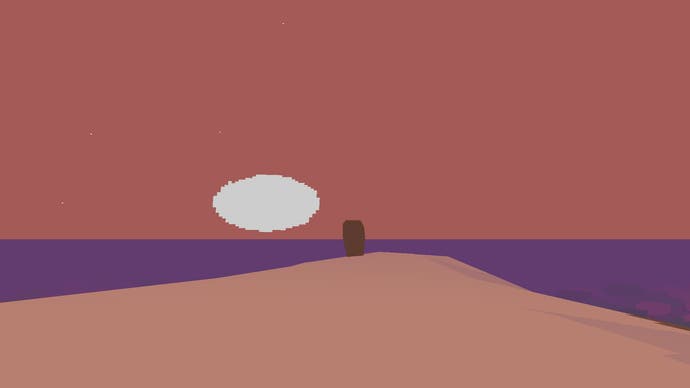
I remember being at a meeting. It was a meeting about a TV show, and my writing partner was trying to explain an idea to a producer. I was sitting there thinking about how to bring up the subject of the pulse in my neck, and how to ask the producer if he thought it looked normal. I was so far gone that I was looking for reassurances from strangers in inappropriate settings, despite not believing anyone when they said that everything was okay.
Constant panic is an exhausting thing. Constant sadness is worse. And I was completely heartbroken. I was going to die before my beautiful daughter was old enough to remember who I was. The thought of that destroyed me. I was angry. I was angry that my body had turned against me, and that no one was helping me.
In truth, I was hiding a lot of it. Friends were worried, sure, but I don't think they quite realised how much of a mess I was actually in. The worst depths of it were completely private, and secret, and left me completely alone down there. My life, understand this, was totally gone. I was completely obsessed with my own mortality, and the constant tyrannical beating of my heart, and the inescapable sadness of life. I had a girlfriend I loved, a beautiful baby daughter, great family and friends and a good career. And I had absolutely no way of reaching any of it.
And then, like magic, I was saved.
Todd Rundgren, Healing Pt 1
In 1981, Todd Rundgren released an album called Healing. The cover art shows Todd, head bowed, before the touch of a human hand. I think it's the most beautiful thing any human being ever created, because it literally saved my life. I've found it difficult, over the years since, to explain how this set of music managed to pull me out of hell. The first time I listened to it, late at night, I felt an incredible wave of relief. It was speaking to me. It understood exactly where I was, and the pain that I was in. And it was utterly beautiful.
The album closes with a long three-part suite, where Todd Rundgren (and I'm crying as I write this) simply comforts the listener for 20 minutes. That's pretty much the only rationale behind it. There's no music industry cynicism, no thoughts of recording a "hit", just an act of kindness. Just beauty.
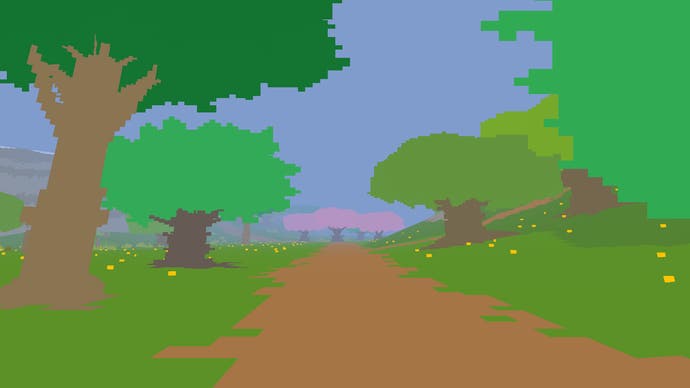
And that beauty saved me, completely.
I got better, and lost the madness of a long dark year, over a week of listening to a beautiful work of art. I was filled with joy. I had been saved by an act of compassion by a person I had never met - an act of compassion that had travelled to me from 27 years in the past. And I've been fine ever since. I've been happy.
Healing isn't a commercial album. It's a work of beauty. And this is what brings me back to Proteus.
As I walked across Ed Key's heavenly island, I asked myself why he'd built it. I communed with the spirits on the top of Ed's hills, listened to David's fireflies, and watched the rain fall all around me. Why build this? Why make this place?
People need beautiful places to visit where they can feel the humanity of a creator. We need to bow before the touch of a human hand. We need works of art that serve no purpose other than the expression of a kind of love. Just as the body needs air, the mind needs beauty.
And so, Proteus might save someone, like Healing saved me.
Todd Rundgren, Healing Pt 3
